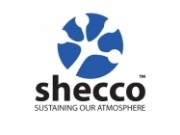The ATMOsphere America Review Panel is pleased to announce the first round of case study selections for ATMOsphere America 2016 in Chicago. Hillphoenix, Baltimore Aircoil Company, Heatcraft, Danfoss, AHT, and Evapco will discuss their innovative natural refrigerant-based technologies at the event on June 16-17.
Additional case study selections will be announced over the coming weeks.
This presentation will provide insight into efforts to expand the use of CO2 technology into new markets, focusing on exploring the fit within applications outside of traditional markets and discussing key lessons for application in these tangential product spaces. Atkinson will discuss lessons learned from applying CO2 booster technology in cold storage and other industrial applications and comparing and contrasting these vs. traditional food retail applications, as well as the use of CO2 booster technology in ice rinks, highlighting improvements in ice quality compared to traditional HFC solutions.
The case study will cover primary drivers persuading many to convert to CO2 systems in these applications, return on investment, and conclude with an exploration of other related spaces where CO2 booster technology has been used and discuss methods for evaluating additional applications.
Total cost of ownership software for transcritical CO2 systems by Philip Hollander, Baltimore Aircoil Company
Baltimore Aircoil has developed Total Cost of Ownership (TCO) software that allows a user to perform an evaluation between an air-cooled gas cooler and a hybrid gas cooler/condenser for transcritical CO2 systems. ASHRAE design and bin weather data, plus utility costs (general and demand charges) are included for 200+ cities, allowing peak energy, annual energy consumption, water consumption, and overall utility costs to be considered for the compressors and gas coolers in transcritical CO2 systems.
Charts showing the seasonal performance of the different equipment provide easy visual representation of the annual system operation. Detailed data on energy usage, water consumption, and effective CO2 emissions reduction is also calculated and presented.
Practical applications of an ultra-low-charge NH3/CO2 cascade system in a retail environment by Masood Ali, Heatcraft Worldwide Refrigeration
The presentation will provide illustrations of an ultra-low-charge NH3 system in cascade with CO2 for use in supermarket and cold storage applications that has incorporated a variety of design features that are highly energy efficient, leading to reduction in TCO (Total Cost of Ownership) of up to 20%.
Heatcraft will dispel the myths of regulatory hardships and prove immunity to regulations by sharing experiences from a Piggly Wiggly store in Columbus, GA, USA, which utilizes the ultra-low charge NH3/CO2 cascade system.
Results of preliminary energy efficiency data obtained directly from an operating store will be presented with an NH3 system and an HFC system that is installed at the store. This study will share the lessons learned and validate the design and performance evaluation of the NH3 system in the supermarket environment.
Ejector technology – The next generation in transcritical CO2 by Kenneth Bank Madsen, Danfoss
James Knudsen will outline the latest developments in ejector technology, which has the potential to make transcritical CO2 a viable, energy efficient, solution in any climate. Since September of 2014, Danfoss has been testing CO2 ejector technology in a Southern European supermarket designed with a single system that combines air conditioning, heating, and medium- and low-temperature refrigeration. The test period has shown reliability and significant reductions in both average and peak energy consumption during the warm periods, as well as shown that that ejector technology can provide savings in first cost in addition to significant energy savings.
Hydrocarbons: Energy savings, utility rebates & vast applications by Howell Feig, AHT
The case study will explore the process of working with Southern California Edison and Pacific Gas & Electric in an effort to demonstrate the significant energy savings found using self-contained R290 cases vs. comparable R404A cases. Measured results, along with Whole Foods’ experiences using AHT’s R290 cases will be presented. The study will also discuss the possibilities of using hydrocarbon cases for an entire store, and why this type of system can be an optimum solution for all retail channels in any climate zone.
Case study a low charge ammonia packaged refrigeration system installation at Western Gateway Storage Co. in Ogden, Utah by Kurt Liebendorfer, Evapco
Packaged low-charge ammonia refrigeration systems are a growing technology trend in the industrial refrigeration sector because of the need to reduce the large quantities of ammonia that are typically found in traditional systems. Liebendorfer will discuss how Evapco’s low-charge units significantly reduced the quantity of ammonia at the Western Gateway facility, allowing for safer operation and a reduction of the regulatory burden for both the owner and contractor. The low charge units on the Western Gateway project also provided energy savings, which resulted in an electrical rebate from their utility supplier. The energy efficiency savings of the low-charge solution will be analyzed, as well as other benefits including faster project installation, quicker startup, simpler operation, and reduced cost of ownership.
